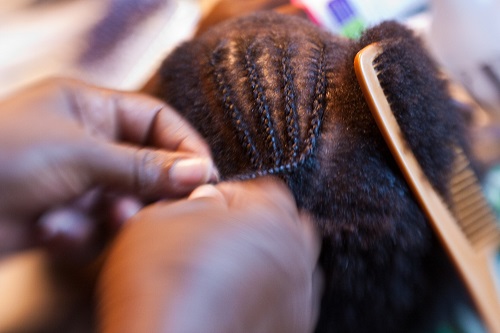
What do monks and ex-cons have in common? Both have been denied the right to earn a living in their chosen fields thanks to state laws requiring people to have a state license.
Occupational licensing laws require would-be employees to take hours of training at a licensed facility and pass a state test before they have the right to work. These laws apply to a vast realm of occupations, from hairdressers and cosmetologists, to midwives and landscapers. The state of New York licenses 130 separate professions.
Among them in Louisiana are casket makers, including the monks of St. Joseph Abbey. The monks took part in the long monastic tradition of supporting themselves through enterprise – in their case, making simple coffins for the public. Tyler Bonin explains in a new essay for Religion & Liberty Transatlantic that the monks’ success brought a backlash:
The monks of St. Joseph’s in Covington, Louisiana, had been successfully producing wooden caskets for years, with the sales sustaining the abbey. Funeral industry leaders manning the Louisiana State Board of Embalmers and Funeral Directors deemed this dangerous to the public. Licensure requirements mandated by the board placed a strange burden on casket makers, requiring coursework and unrelated embalming training and apprenticeships. The government requiring carpenters to engage in training within a completely different field is not, by any use of logic, an attempt to protect the consumer. It is clearly a form of cronyism.
Another class of victims, he writes, are ex-convicts, who are often legally barred from obtaining state occupational licenses. This barrier may be leading some back into a life of crime. Stephen Slivinski of Arizona State University found that “between 1997 and 2007 the states with the heaviest occupational licensing burdens saw an average increase in the three-year, new-crime recidivism rate of over 9%. Conversely, the states that had the lowest burdens and no such character provisions saw an average decline in that recidivism rate of nearly 2.5%.”
The licenses are said to be necessary to protect the public and assure the person meets the minimal competence requirements of a profession. But Bonin argues that the laws have “served as a cartel, or a form of professional protectionism.”
The requirements are not necessarily even related to the performance of the job for which they are required. For instance, in South Dakota, people who charged money for braiding hair needed to attend cosmetology classes – which did not teach the form of braiding in question. South Dakota recently repealed such a law.
Bonin questions whether these laws are fully in harmony with Article 23 of the Universal Declaration of Human Rights (UDHR), which states, “Everyone has the right to work, to free choice of employment, to just and favourable conditions of work and to protection against unemployment.”
His careful, well-documented argument raises a potent question: Should people of faith support occupational licensing laws and, if so, how high should those hurdles to employment be?
You can read his full essay here.
(Photo credit: Steven Depolo. CC BY 2.0.)

